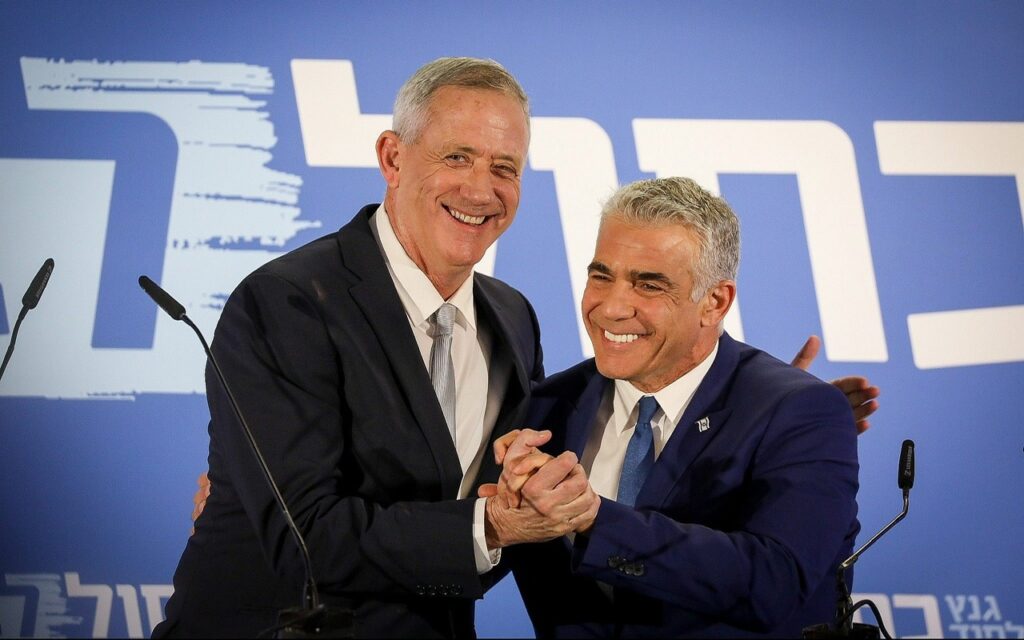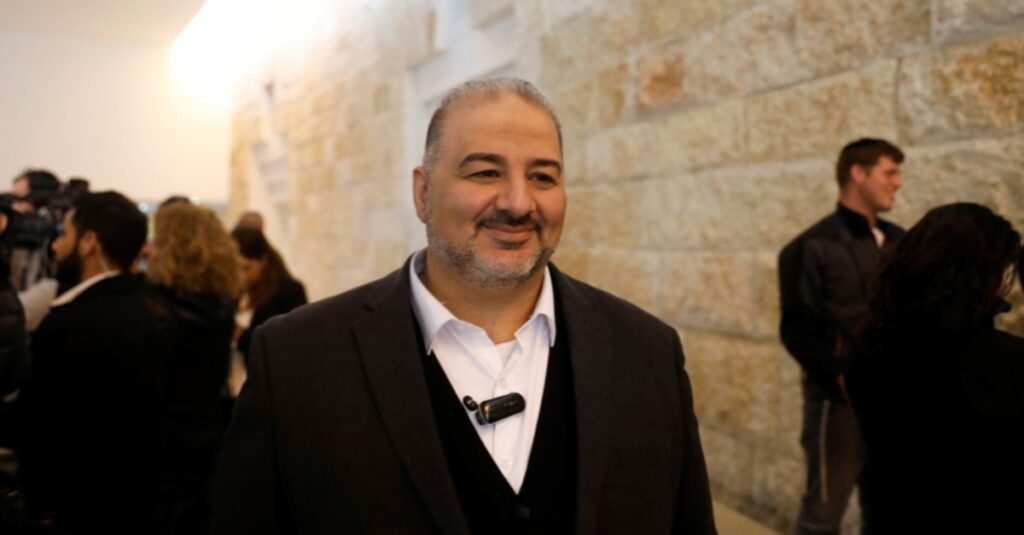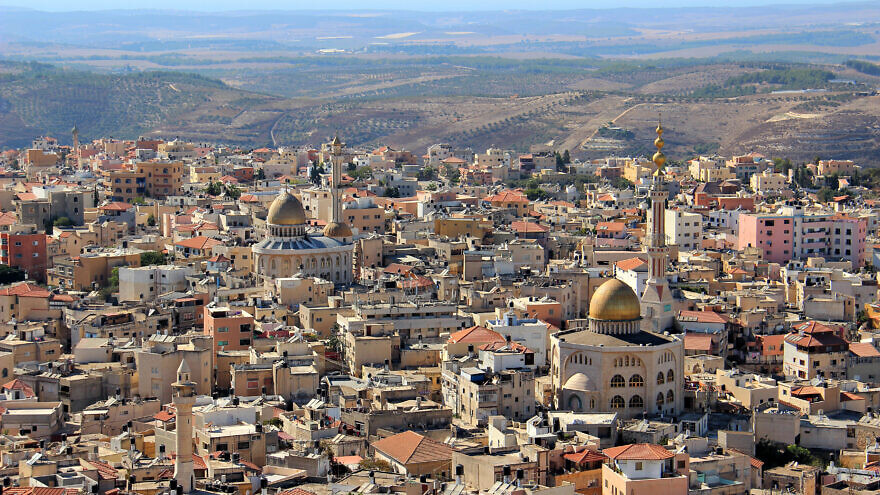Trying Times for Israel
As Americans continue the attempt to sort out a contentious Presidential election fraught with voter fraud, Israel’s political challenges have not abated. A Biden Presidency means, at the very least, a lowering of Israel in terms of foreign policy priorities and indifference (or worse still, malfeasance) to Israel’s security interests. Prime Minister Netanyahu continues in office as part of a unity coalition deal with Benny Gantz and his Resilience Party. Under the terms of the deal, late in 2021, Netanyahu is supposed to transfer the office to Gantz, a move he is expected to thwart by means of early elections. Meanwhile, with the peace deals made between Israel and the UAE, Bahrain, and Sudan, at least one Arab party in Israel is contemplating aligning with the Israeli right, a notion once so preposterous it would be ridiculous to mention it. Changing times, however, have brought a realignment of interests that may open that door.
Interested in learning more about Israel and current events in the Middle East? Visit Inside Israel News today!
A Demotion
As the question of the US Presidential race continue to climb the legal ladder to the SCOTUS, the Biden campaign has begun the transition process. A Biden Presidency, at the very least, means a demotion for Israel in terms of priority. One of America’s closest allies, Israel will receive less attention from an administration made up of people who do not share President Trump’s emphasis upon America’s interests and those of its close allies. The Democrats believe that America is the problem in the world and that the promotion of America’s interests only causes harm. A Biden Administration will likely look to lifting sanctions on Iran as the Obama Administration did, against the promise that the Iranians will at least pretend to consider delaying their nuclear program. When Obama lifted sanctions and transferred money to Iran, the Iranians launched a wave of terror throughout the Middle East that saw the escalation of wars in Yemen, Syria, and the Palestinians territories. Tens of thousands died the onslaught, an Iranian-backed blood bath.
It is possible that a Biden Administration will also abandon the peace agreements recently reached between Israel and the United Arab Emirates (UAE), Bahrain, and Sudan. The Administration will certainly take no action to bring more Arab states to peace negotiations with Israel. Antisemitic Democratic Congresswoman Ilhan Omar has already called for a Biden Administration to scrap the peace deals and turn against Israel. What is more, if the Obama Administration is any guide, the Biden Administration may interfere in Israeli politics and attempt to unseat long serving PM Benjamin “Bibi” Netanyahu rather than leave Israeli politics to the voters therein. Israel certainly faces challenges in light of these changes of US policy.

A Failing Coalition Agreement
Two Israeli elections in 2019 proved inconclusive, along with a third inconclusive election in early 2020 as well. A center-left alliance of parties led by former General Benny Gantz and centre-left politician and former journalist Yair Lapid sought to unseat Prime Minister (PM) Netanyahu. Bibi Netanyahu is being pursued on specious and largely circumstantial charges of bribery and corruption. His opponents argued that Bibi should stand down from office to face the charges in court (which would be quickly dispelled but at the cost of his political future). Gantz and Lapid, among others, refused to negotiate a coalition deal with Bibi through three inconclusive elections even as Netanyahu and the right emerged from each as the clear winner.
With the Wuhan Virus (Coronavirus) crisis looming this last spring, Gantz finally agreed to a makeshift unity coalition government agreement with Netanyahu in which Netanyanu would serve as PM for a time before handing the office over to Gantz. According to the agreement, Netanyahu is to step aside in 2021 in favor of Gantz. Israel has suffered terrible economic harm from two successive lockdowns. Many a small business owner has seen their life’s work destroyed. The ultra-orthodox community has been in nearly outright revolt against the restrictions which they see as going against their centuries-old traditions of placing religious study and worship above all other considerations. While their fanatical devotion to this obsolete lifestyle, born in the Shtetls of Eastern Europe and Russia is tiresome to most Israelis, who would prefer that this lot place greater emphasis on serving in the military, working and contributing to the economy, and on secular education (math and science); the orthodox certainly have a right to continue their lifestyle unmolested by government abuse.
The state budget is in crisis and may fail to pass, which alone could bring on early elections. The passage of the state budget is often treated as a vote of confidence in the government. Netanyahu’s consistent preference for free market solutions is objectively the best way forward for Israel, despite his personal failings. Bibi’s narcissistic leadership style, by which he presses his own agenda, compromising very little with others, and destroys any potential competitors, have long been among the chief complaints lodged against him. His strong, one might say presidential, leadership style is not one to which Israeli’s are accustomed. Nevertheless, his prescription for Israel’s recovery will focus on reviving the private sector and restoring Israel’s once booming economy. His centre-left detractors are too easily drawn off from the free market path, to which they give lip service but little real devotion. Israel seems to be heading for new elections as the PM makes a last minute plea to avoid the same.

It is widely believed that Bibi will weather this crisis and seek new elections next year, that he hopes, and polls bear out, will lead to a stronger Israeli right capable of continuing his term of office. Netanyahu has served as Prime Minister since 2009 consecutively and previously as PM from 1996 until 1999. He is the longest serving PM in Israel’s seven-decade history. If new elections occur the next year, current polls show Likud finishing a strong first, with the Yamina (New Right) Party, led by Naftali Bennet (currently sitting in opposition), earning over 20 seats and perhaps a second or third place finish. Yamina and the ultra-orthodox political parties, Shas (Talmud) and United Torah Judaism (UTJ), could provide Bibi and his Likud (Coalition) Party with a strong centre-right coalition that could see Netanyahu through at least one more full term. It is not immediately clear who might succeed Bibi if he chose to step down or what impact that might have on Israeli policy.
The Unthinkable Becomes Plausible
Even this summer, let alone anytime in prior years, the suggestion that some Arab parties might make common cause with the Israeli right for the benefit of Israel’s Arab minority and the regional interest of opposing Iranian (Shiite) influence would have been utterly preposterous. To say as much would have proven the writer a fool or imbecile. Yet, today there is a plausible path to just such an outcome. Speaking on Channel 20, known for being a rightwing news station, Mansour Abbas (no relation to the Palestinian President Mahmoud Abbas – a common surname) of the conservative Arab Ra’am Party suggested that there might be just such a prospect.

Abbas argued that the interests of the Arab minority might be served by joining a right bloc coalition. It would also serve to aid Israel in strengthening its alliances with Arab states long at enmity. It is a prospect that could strengthen the still far distant prospect of a real, lasting peace with the Palestinians. Although the prospect of peace with Arab states was also a far distant prospect just last year. Abbas’ comments drew the ire of other Israeli Arab political figures who strongly opposed his move and have criticized him personally. If Abbas and his party truly pursued an opportunity to join any governing coalition it would go a long way toward healing the divisions in Israeli society and would certainly serve to improve the circumstances of Israeli Arabs.
About 21% of Israelis are Arab including Arab Christians, Druze, and Muslims. Most Israeli Arabs are Muslim, making up about 18% of the total population. Most are the descendants of Muslims who chose to remain in Israel following the 1948 War of Independence. They were granted citizenship and are treated as legally equal to other Israelis, except that they are exempt from mandatory conscription in the Israeli Defense Forces (IDF). Arab women voted for the first time in Israeli elections. Israeli Arabs as a demographic are poorer than average Israelis, although this has more to do with their own culture and behavior than discrimination. In fact, slightly less than half of Israelis are the descendants of Jews who were forced to flee their homes in the Middle East, and these Mizrahi Jews have faired only slightly better than Israeli Arabs on the whole.
Given that context, Israelis are often unkind toward the Arab minority and the feeling is largely mutual. There is considerable bad blood between Jewish and Arab Israelis; which is understandable given the history. Nevertheless, Israeli Arabs enjoy greater freedom of speech and expression, assembly, religion, press, and economic opportunity than those residing in majority Arab countries. There is much the Arab world could learn from Israeli Arabs. The PM is planning to launch a new initiative to combat organized crime and violence in Arab neighborhoods, a long festering problem. It would be a blessing if Israeli Arab leaders could work constructively toward the success of such measures rather than simply criticize them.

Ra’am currently sits in a party called Joint List in which several Arab parties run together as one large party list to ensure that they clear the electoral threshold of 3.25% necessary to earn seats in Israel’s parliament: the Knesset (community assembly). Learn more about Israel’s complex Multi-Party Proportional Electoral System. The Joint List won a record 15 seats of the 120 in the Knesset in the most recent round of elections. Ra’am, formerly the Arab Democratic Party, is a conservative, nationalist, Islamist party led by Mansour Abbas since 1996. It has support among many more Islamist nationalist Arabs and Bedouins. Many Bedouins and Druze choose to volunteer in the IDF. It has been my own experience, anecdotally based upon conversations with Israeli Bedouins, that they feel Israel treats them better than many Arab countries do (who regard them with suspicion not unlike how many European states view the Roma – Gypsies).
Ra’am sits in the Joint List with three other parties including Hadash (New), Ta’al (Arab Renewal), and Balad (Nation). Hadash is, essentially, the Arab Communist Party which supports, among other things, homosexual rights, often to the horror of other Arab parties. Ta’al (formerly Arab Union) is a secular, nationalist party. Balad is a secular-leftist, pan-Arabist, anti-zionist party that largely represents Arabs in the northern triangle. In recent years they have chosen to run together as a single party list due to the higher electoral threshold of 3.25% which threatened to prevent these parties from earning any seats in the Knesset.







